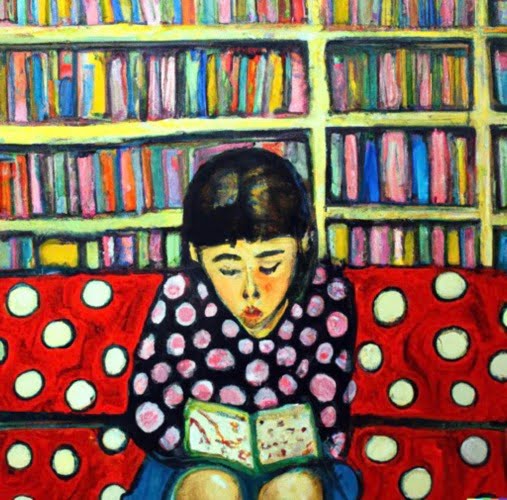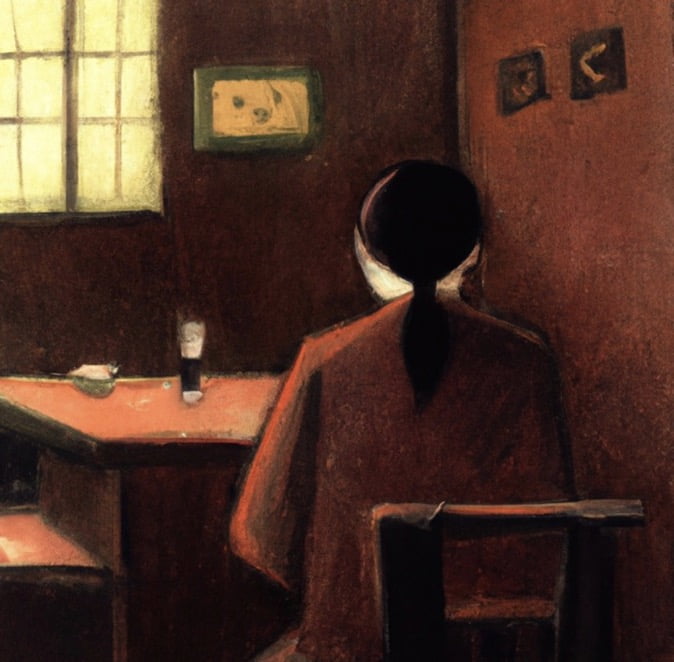Table of Contents
“Being Too Much” – Have You Heard That All Your Life?
Gifted people are usually also highly sensitive and intense. They are more aware of subtleties; their brain processes information and reflects on it more deeply. At their best, they can be exceptionally perceptive, intuitive, and keenly observant of the subtleties of the environment. Yet emotionally, intellectually and spiritually gifted people are also often overwhelmed by constant waves of social nuances and others’ emotional and psychic energy.
People’s brains vary. Research has shown that some people are born with a neurological make-up that can cause them to be more emotionally or intellectually intense, sensitive, and open to external stimuli than the general population. Gifted people belong to this category, though their reality is often not recognized.
(You may still have qualms about the word ‘gifted’. Gifted here doesn’t just mean ‘high IQ’, it really refers to a different way of being, and it is a form of neurodiversity. It doesn’t just mean being ‘talented’.)
From the get-go, gifted people’s way of seeing and being in the world is not shared by those around them. Since they think more and feel more, they also reach their limits much quicker. They are more easily affected by their surroundings and by those around them, which may exacerbate the impact of any problematic events in their early years. To people around them who don’t understand, the emotionally and energetically gifted are often seen as ‘being too much.’
The developmental differences between gifted people and others become apparent before 18 months old. At a pre-verbal age, gifted people can sense that the way they experience the world is different. They feel an omnipresent sense of feeling like a Martian visiting the Earth; and this feeling of lacking a ‘shared reality’ with those they depend on – their parents, older siblings, or elders in the family– can be terribly unsettling.
Sadly, because of the lack of awareness and understanding both in the family and in the wider world, many highly sensitive and gifted people have grown up internalizing the belief that there is something wrong with them, or that they are somehow defective, ‘being too much’, or even ‘toxic.’

Gifted isn’t ‘better’, it is DIFFERENT.
The Wounds of “Being Too Much”
Most people would not think of being intelligent, insightful, and inquisitive as a cause for childhood hurt. But the fact that many gifted adult challenges stem from childhood says otherwise. Being seen as ‘being too much’ is isolating in itself, and the wound is often compounded by other factors.
Apart from being the target of envy, being the unwelcomed truth-teller in any social group, and being the victim of the ‘Tall Poppy Syndrome,” the biggest potential source of wounding for emotionally, intellectually or spiritually gifted people often comes from their families.
You might have been born with emotional sensitivity, strengths and empathic abilities that go beyond what anyone in your family can ever imagine. You may have a sense of how you are different but are not able to put a name to it. But in a family where everything seems ‘normal’. If you had been born with an old soul, the ability to see hidden dynamics and generate penetrative insights, the wound of being ‘too much’ can follow.
1. Subtly Rejected for ‘Being Too Much’
The first layer of wounds for gifted people comes from their parents’ implicit rejection of them. Your parents may feel intimidated by your penetrative insights. In one way or the other, they have a felt sense that you can see through them— their vulnerabilities, hypocrisies, mistakes and weaknesses… everything they would normally hide from their children.
They may be afraid of you on some level. Even when you were little, they might have felt threatened by your speed, insights, honesty and intelligence. To protect themselves, they put a wall up and pull back. For a child, however, sensing that your parents were, on some level, afraid of you could feel extremely rejecting and abandoning. It might have left you feeling utterly unsafe and helpless even in your own home, which are feelings you can carry into adulthood and throughout your life.
This may not always be the case, but when you point out things they do not want to hear, your parents can sometimes flip into a defensive ‘children mode,’ where they become cold, passive-aggressive or critical, and do not have the capacity to give you the love and support you deserved as a child. The less emotionally mature a parent is, the more likely they flip into a defensive, angry child mode.
To your young mind, it was as though you have ‘lost’ the parent who ought to be there for you. On a feeling level, you have been metaphorically orphaned.
2. Gifted People are Often Parentified
The second layer of the wounds for gifted people is the inevitable parentification.
Since you have, from a young age, been knowledgeable, competent, and effective in getting things done, you have always stepped in to help your parents when they were struggling. These might have been actual physical tasks, such as with technology or language, but parentification could also take a more subtle, energetic form. You might have to repeatedly witness one or both of your parents’ sadness and vulnerability and felt the overwhelming need to comfort or protect them.
Since they sensed your deep empathy and emotional strengths, when they were upset, they wanted you to comfort them, to never leave them, and to emotionally take care of them. Your love becomes their clutch, and even consciously you know you cannot rescue them, you feel burdened by the responsibility to please them, cheer them up, and protect them. If you were parentified, even today you may feel an overwhelming sense of responsibility and impulse to take care of others and rescue them.
For many gifted people, the inevitable parentification can also happen on the sibling level. Your siblings also felt you are more like their parents than your parents. If your parents were emotionally unstable or abusive, you might have to stand up for your siblings and speak up on their behalf when you witnessed injustice. Your parents might then frame you as the ‘difficult one’, and reinforced the scapegoat/ ‘black sheep’ role you had to play in the family.
Naturally, you became who everyone relied on. When crises happen, they implicitly looked up to you. Your empathy and sensitivity might also mean you became the ‘family therapist.’ Everyone comes to you when they are in distress, even today.
On the surface, it was not obvious that the adult-child, caregiver-caretaker roles have been reversed. But emotionally, energetically and psychologically, you were constantly worried for your family member, minding their needs, trying to cheer them up when they are upset, or managing the relationship dynamics at home so they would feel better. Once the pattern is set, you may find it difficult to change it even as a grown-up.
(Here is a full article on the wounds of having been parentified.)
3. Having No One to Lean on
The third layer of childhood wound for gifted people and a major cause for their challenge is that a fundamental need of them as a child— the need to have someone stronger and bigger than themselves to lean on — was not met.
Most parents try their best, but not all parents have the maturity and resources to always act as their child’s anchor. Sometimes, even they were meant to be your caregivers when perturbed, they could relate to you as their inner fearful children. They wanted your approval, they wanted you to emotionally caretake them, they wanted you to prove how well they have done. When you thrive and shine, they might even compete with you.
Even the most gifted amongst us do need someone they can at long last look up to and seek guidance from. Many gifted children, especially as they enter adolescence, find that the adults in charge are not worthy of their authority. On some occasions, the bright child will find a wise figure outside of the family to have as a spiritual father/ mother, a wise sage, or a mentor. But many times, such a person does not exist. In these situations, they are left on their own to solve all of life’s problems, from meandering puberty to interpersonal relationships. Having to find their ways on their own, alongside constantly told that they are ‘being too much’, can lead to complex trauma.
Emotionally and energetically gifted people are alert to the hypocrisies, sufferings, conflicts, and complexities of their surroundings, even before they can cognitively articulate or handle it. Therefore, the perceptively gifted child is perplexed by the contradiction between the emotional vibration they get from the adults and their surface expressions: You might have seen through the masks of propriety, the forced smiles, or the white lies. This discrepancy could have caused you to become distrustful of the world. Seeing society’s injustice and hypocrisy so early on can also lead you to deep despair and early cynicism.
As a highly competent child, you might have appeared independent, but deep down you carried a longing for someone that you can wholly lean on and relate to, so you could finally relax and be taken care of.

“It is a terrible thing to do to unusual people, to drive them so deeply into themselves that each reemergence is a volcanic explosion.”
―
4. Gifted People Grapple With Existential Loneliness
Existential loneliness is a common experience amongst gifted people. Carrying a sense of alienation for the entirety of their lives is another layer of wounds that cannot be erased overnight.
As an intellectually excitable child, you had deep insights from a young age. You have always felt the world’s pain and sense others’ sorrow, both in your immediate surroundings and in the wider world. But as an old soul trapped in a child’s body, you might have felt very lonely to be the only one who knew what was going on beneath the social facade of normalcy and harmony. You might even have felt guilty for not being able to alleviate the pain and suffering or reverse the injustice you see in the wider world. You may judge your empathy and the ability to feel the world’s pain as a part of the ‘being too much’ problem, and disown your unique empathic abilities.
Your creativity and intuition also give you such a rich and deeply reflective inner life that is not shared by those around you. As a young soul, you grappled with existential concerns such as life and death and the meaning of life and found yourself in an absurd and meaningless world that you could do little to alter. However, when you tried to share what was on your mind with others, you were often met with puzzlement, blankness and even hostility. They might criticise you for being arrogant, or ‘too much.’ With no one to connect with you to the depth of your being, or recognize the fullness of who you are, it is understandable that you carry an unshakable sense of loneliness into adulthood.
Furthermore, being a natural fast learner and a perceptive seeker, you might find that your parents could not keep up with you. They did not share your perspective of the world or your enthusiasm for knowledge. To an intense child, the essential needs for intellectual stimulation and ‘meetings of the mind’ were painfully lacking.
If when you tried to share what you saw, you might have been shut down. This can cause a lot of inner conflicts and confusion for you. When everyone around you denied your perspective, you may start to doubt your own judgement, intuition, and even sanity. If no one was there to mirror your reality, you may unconsciously choose to distrust and disown your own intuition. As a result, you have lost a sense of who you are, what to believe in, how to make decisions, and who to trust.
With a psycho-spiritual age that was older than your actual age, it might have been difficult to get along with your peers. This discrepancy, especially when coupled with parentification, can make you feel like you never had a childhood. As one child described it, being gifted can feel like an “abandoned alien waiting for the mother ship to come and take them home (Webb, 2008).”
5. Feeling ‘too Powerful’
Alongside being told they are being too much, highly sensitive and intense people are often made to feel ‘powerful’— overly powerful, in the family system, even from a young age. ‘Powerful’ may look like a positive word but when it comes to a child’s developmental need, feeling one is overly powerful is actually frightening, disconcerting, and detrimental to their development.
All children need external boundaries. They need to know if they push too far, something will push back. That is why children would often test boundaries to find where the ‘no’ is. They may appear to hate it when parents set boundaries, but inside they feel safe knowing there is a line drawn between possible and impossible, yes and no, safety and danger. When your parents were weaker than you, less competent, were clearly naive about the world, or if they relate to you in a chaotic and illogical way, it is hard to respect their boundaries.
Feeling like you were ‘too powerful’ as a child was damaging and frightening. The message you have received was that things should be under your control. When you need something to happen, you can usually do so and you must. The implication is, however, that when bad things happen, it is also your fault, because the implicit belief is ‘everything should be under my control’. The internalised message might be ‘I should have the power to stop my mother from being beaten up’ ‘I should have the ability to make everyone happy’, or even, however unconsciously, ‘ I should have the power to stop the accident from happening’. Carrying these implicit and internalised burdens into adulthood, you may become haunted either by guilt or anxiety.
As a child, you absolutely needed someone more powerful than you, even just to discipline you and tell you things cannot always be in your control. When this need was not met, overcontrol (overcontrol does not mean being ‘controlling’ of other people; please see HERE and HERE for more details) tendencies, perfectionism, and chronic anxieties. Even as an adult, you might feel you are always somehow falling short of your own standards, and failing other people’s expectations of you.
This effect is compounded by the fact that many gifted people are also incredibly conscientious. They always try to figure out the right course of action and can be hard on themselves. For example, they tend to assume a lot of responsibilities in relationships. When conflicts arise, they quickly conclude that they have done something wrong, and become overwhelmed by self-criticisms and shame.
(Here is a full article on Overfunctioning in Relationships)
6. Being Energetically Overwhelmed
Many gifted people have relatively permeable energetic boundaries. One way to describe this is that they tend to have ‘thin skin’, or that they identify as an empath. They hear faint sounds, detect subtle smells, and notice the most subtle changes in their surroundings. They may find certain foods too flavourful, or can’t stand to wear certain fabrics.
Gifted people, even as children, can experience other people’s emotions, noises, and other environmental elements as coming onto and even inside of them, or that they merge with those they encounter. At home, they feel every shift and nuanced expression of their parents’ moods and are swayed continuously by events that do not affect their siblings as much.
Being shaken continuously and pierced through by their intensity and events around them, these highly sensitive and highly intense children may never find the mental space or support to develop emotional resilience. Even as adults, gifted people can feel very unstable and ungrounded; and in the long run, many suffer from health challenges such as physical pain, stifled energy, and chronic fatigue.

What makes a child gifted and talented may not always be good grades in school, but a different way of looking at the world and learning.
– Chuck Grassley
7. Being Scapegoated in the Family
When combined with radical honesty, insightfulness can bring interpersonal challenges. The gifted intense child feels compelled to point out what they know and are unwilling to play the game of social facade. Sadly, their truth-telling is often unwelcome in the world. They often become the Black Sheep of the family for this reason.
As the messengers of the inconvenient truth, you might have been blamed for creating discord. At best, you were a source of bewilderment, but at worst, a source of ridicule. At home, you often become the scapegoat. In school, you could become the target of bullies or become relegated to the outcasts on the fringes of school cliques.
Having to choose between their authenticity and other people’s acceptance is an overwhelming challenge for any young person. You might have grown up feeling incredibly self-conscious about your differences from others, to the extreme, may even believe that you are somehow ’toxic’ or dangerous, and live with a constant fear of being cast out from your family or social circle.
Are you the black sheep of your family?
8. The Wounds of Being ‘too much’.
Being gifted comes with a set of unique and at times intense needs. From a young age, you live with the pressure of your creativity and have a yearning for intellectually stimulating conversations, deep contemplation, and insight into life’s meaning. Your inner life is pierced with moral concerns, strong convictions, idealism, perfectionism, and forceful passions. However, without sufficient understanding from the adults around you, you might be misunderstood as being intentionally difficult. As a result, your natural needs for an adequate amount of stimulation and support may be dismissed or deprived.
Even with the most supportive parents who validate your sensitivity and speed, you may have an awareness that you are somehow ‘too much’ for people around you. You might have been explicitly criticized, or just implicitly rejected for wanting too much, moving too fast, being too naive, too serious, too easily rattled, or too impatient. Realizing that your natural self can be overwhelming to others, you may decide to gradually shut down, to build a ‘false self,’ and to curb your excitability and enthusiasm.
“Being Too Much”, or Just Apples That Have Fallen Far From The Trees?
Unique challenges arise when gifted people are born into a family in which the parents or siblings do not function in the same way.
In his perennial work ‘Far from the Tree,’ Andrew Soloman addresses the differences between directly inherited (vertical) and independently divergent (horizontal) identities. Normally, most children share at least some traits with their family: Children of colour are born to parents of colour; People who speak Greek raise their children to speak Greek. These attributes and values are passed down from parent to child across generations through DNA and cultural norms. However, children are not always a replica of their parents; they may carry throwback genes and recessive traits beyond anyone’s control. When someone acquires a trait that is foreign to the parent, it is referred to as ‘a horizontal identity.’ Horizontal identities may include being gay, having a physical disability, having autism, being intellectually gifted, or empathically advanced.
It can be excruciatingly difficult for any parents who are presented with gifted children whose ways of being and needs are alien to them. A gay child being born to straight parents, for instance, raises myriad challenges when it comes to understanding and acceptance. Vertical identities are usually respected; whereas horizontal ones are treated as flaws. Any unconventional ways of being, including being emotionally intense and sensitive, are often disparaged as ‘illnesses’ to be fixed, rather than identities to be accepted.
Our culture plays a part in perpetuating this disconnect. There is something primitive in our tribal nature that makes humans reject what we are not familiar with. Although our world as a whole has made progress in bridging the divide between class, gender, and race, awareness, and respect for “neuro-divergent” traits such as emotional intensity have not broken through into public consciousness. As a society we continue to pathologize individuals who have different ways of thinking, feeling, relating to, and being in the world. Under the influence of a culture that is inept at embracing diversity, some parents have come to perceive their highly sensitive child’s horizontal identity as not only a problem but even a personal failure or insult.
It takes extra resilience for families to learn to tolerate, accept, and finally celebrate intense, sensitive and gifted children who are not what they initially had in mind. The fact that there is no “guide” to parenthood, especially when a child cannot be handled through conventional methods, leaves a painful gap of disconnection between the parents and the child. “Parenthood abruptly catapults us into a permanent relationship with a stranger,” wrote Andrew Solomon, who conducted over 4,000 interviews for his book. Families of emotionally intense children are presented with a fork in the road; They can reject or scapegoat their child for their strangeness, or they can rise to the occasion and allow themselves to be profoundly changed by their experience.

“you are not a mistake. you are too many exquisite details to be a mistake.”
― Nayyirah Waheed
Embracing The Intense And Highly Sensitive Child In You
Your home might or might not have been a haven for your highly sensitive, intense, and gifted young soul. (In this page about toxic family dynamics, we address some of the toxic family dynamics that passionate and empathic children often get locked into). Being different can be lonely, but the real suffering comes from having internalized the feeling that you, as a person, are fundamental ‘not okay.’
If all your life you have felt like a Martian exiled on Earth, it might take some time to not only know but also feel in your heart that being intense is not an illness. Being intense comes with the most precious abilities and qualities. You have an extraordinary capacity to understand and empathize with others, as well as the ability to reflect on your feelings, intentions, and desires. Across history, intensity is often paired with other forms of exceptional talents in the areas of music, visual art, sports, and creativity. Your excitabilities are not only highly related to giftedness; they are gifts in themselves. It is up to you now, to provide a safe home for your inner child. This time, under your wing, they can have a nourishing, safe, and exciting childhood.
*
Your highly sensitive inner child, gifted and intense soul is wild and untamed.
No matter how much you try to shut it down, manipulate it, pretend that it doesn’t exist,
its spontaneous nature always breaks through.
Sometimes, your truth sneaks up on you
in the form of awe, love, wonder, and joy.
It is so compelling that you have no choice but to surrender to the ecstatic outpouring.
For that precious moment, you feel your deepest nature, uninterrupted.
Own your wild, excitable, passionate soul.
That highly sensitive child, gifted child, intense child inside of you is waiting to, at long last,
be seen, heard, and embraced for who they are.
*

“You are a marvel. You are unique. In all the years that have passed, there has never been another child like you. Your legs, your arms, your clever fingers, the way you move. You may become a Shakespeare, a Michelangelo, a Beethoven. You have the capacity for anything.”
– Henry David Thoreau
Imi Lo is an independent consultant who has dedicated her career to helping emotionally intense and highly sensitive people turn their depth into strength. Her three books, Emotional Sensitivity and Intensity, The Gift of Intensity, and The Gift of Empathy, are translated into multiple languages.
Imi holds three master's degrees in Mental Health, Buddhist Studies, and Global Cultures, alongside training in philosophical counseling, Jungian psychology, and other modalities. Her multicultural perspective has been enriched by living and working across the UK, Australia, and Asia, including with organizations such as Médecins Sans Frontières/Doctors Without Borders and the NHS (UK). Throughout her career, she has served as a psychotherapist, art therapist, suicide crisis social worker, mental health supervisor, and trainer for mental health professionals.
You can contact Imi for a one-to-one consulting session tailored to your specific needs.
